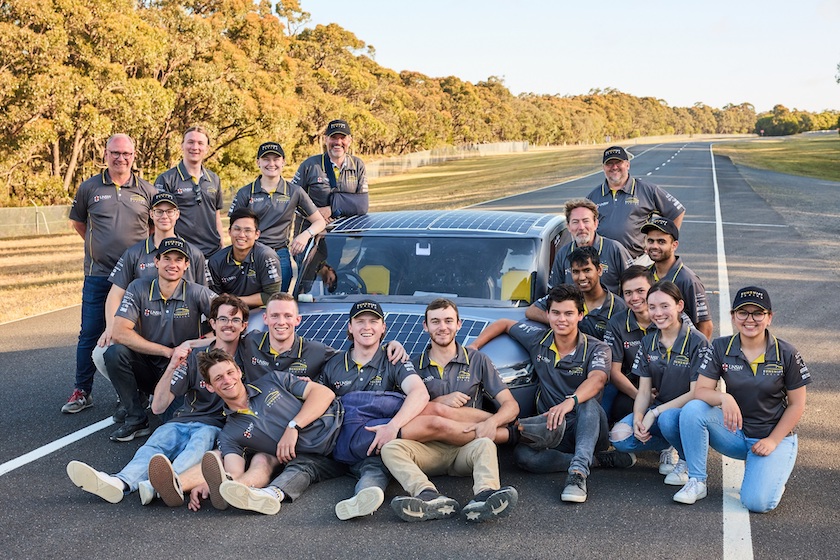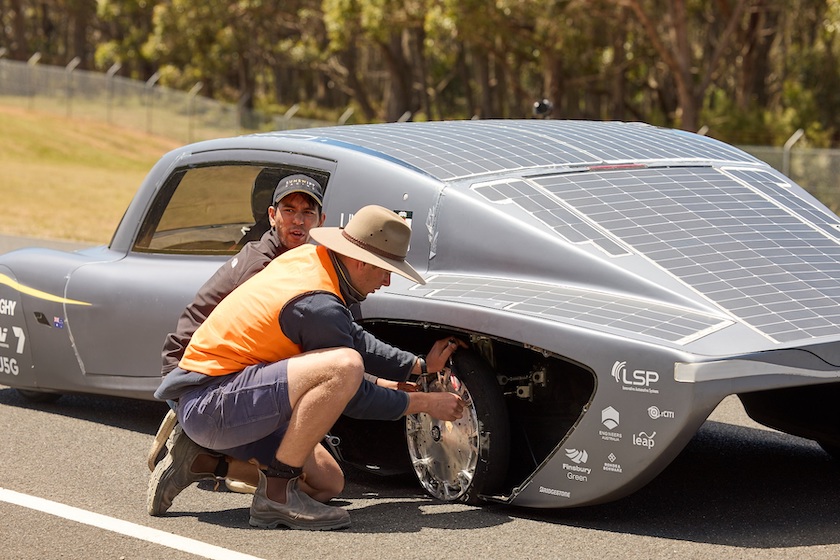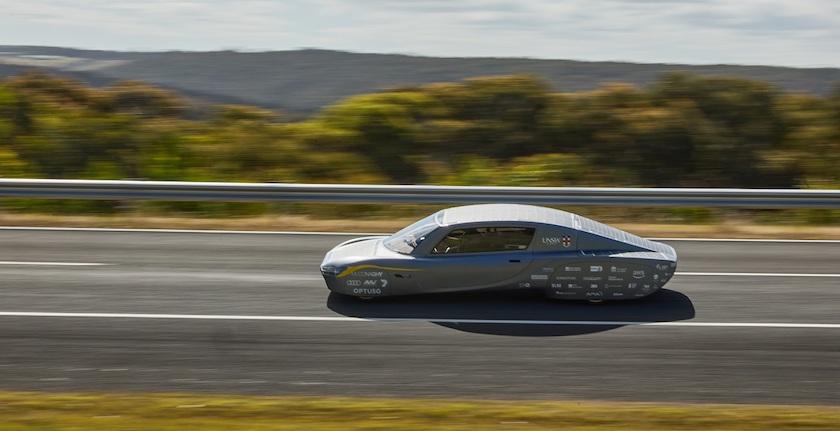As head of operations for Formula One team Red Bull Racing, Richard Hopkins help win four world constructors titles – but he rates his recent success setting a Guinness world record for the fastest 1000km in a solar-powered EV on a single charge equally highly.
“This is amazing, incredible. Wow.”
The solar-powered EV, called Sunswift 7, designed and built by students of the University of NSW, under the leadership of Professor Hopkins, is the first ever to travel 1000km in less than 12 hours – although the team acknowledges it cut things a little fine. The trip – 240 laps of the Australian Automotive Research Centre (AARC) track in Wensleydale, Victoria – took 11 hours 53.32 minutes. That’s more than the distance from Sydney to Melbourne.

The record attempt nearly came to a premature end at one point, when a battery management issue caused the car to grind to a halt. The rules of the event stated Sunswift 7 could not be stationary for more than 15 minutes at a time – and it took the team 14 minutes and 52 seconds to fix the problem and get back onto the track.
Apart from that, the car stopped only to allow for a change of driver every few hours – plus one tyre change due to a puncture.

“The whole year has been leading to this point and it hasn’t been plain sailing,” said an elated Hopkins. “To be honest, we had our doubts about whether we were going to be able to achieve it.
“So to come here and do what we set out to do is just the most incredible feeling. I’m sure those sentiments are shared amongst the whole team.”
To set the record, the Sunswift 7 solar-powered EV achieved an average speed of about 85kph. Lacking such features as airbags, air conditioning and other features which would allow the car to be registered for road use, it weighs in at a mere 500kg – about a quarter the weight of a Tesla.
But Hopkins says the record shows what is possible and what can be achieved.
Sunswift team manager Andrea Holden, a mechanical engineering student at UNSW Sydney, said it feels “very weird” to think the team has helped to make something that is the best in the entire world.
“Two years ago, when we started to build this car, everything was going into lockdown and there were a lot of difficult moments.
“But it’s been so rewarding to see the whole team come together and make so much progress and get us to this amazing point. It was a lot of work and a lot of hours and a lot of stress, but it’s all been worth it.
“This world record is a validation of all the effort everyone in the team has put in.”
Hopkins says the record marks a brilliant achievement for the team of students involved.
“Let’s remember, these are not the best-paid professional car makers in Stuttgart working for Mercedes. This is a bunch of very smart amateurs who have taken all the ingredients and put it together in a brilliant way,” he said.
“I don’t like to call them ‘normal’ students. The reason is that UNSW is the top-ranked engineering university in Australia and this is the top engineering project within the university. So it attracts the very best.
“But these young men and women are the future and they have already demonstrated here with Sunswift what they are capable of – imagine what they will do when we let them loose on the wider world.

“This team have focused on ultimate efficiency in order to break this world record. They have shown what is ultimately achievable if you concentrate on aerodynamics, rolling resistance and the use of smart materials.”
That engineering approach helped achieve an energy consumption of just 3.8 kWh/100kmh, substantially lower than that of the most efficient EVs on the road today which can only achieve a rating of 15kWh/100km, with the average of around 20kWh/100km.
“Sunswift 7 isn’t a production car of the future, since we’ve compromised on comfort and the cost is prohibitive. But we have shown that if you want to make cars more efficient, more sustainable, more environmentally friendly, then it is possible.
“I used to work in Formula One and nobody thinks we’ll be driving F1 cars on the road in five or 10 years. But the technology they use in F1 really pushes the boundaries and some of that filters down and that’s what we are trying to do with Sunswift and what this world record shows is achievable.”
Further reading: Mercedes-Benz overcomes EV ‘range anxiety’ with 1000km capacity Vision EQXX




1 comment